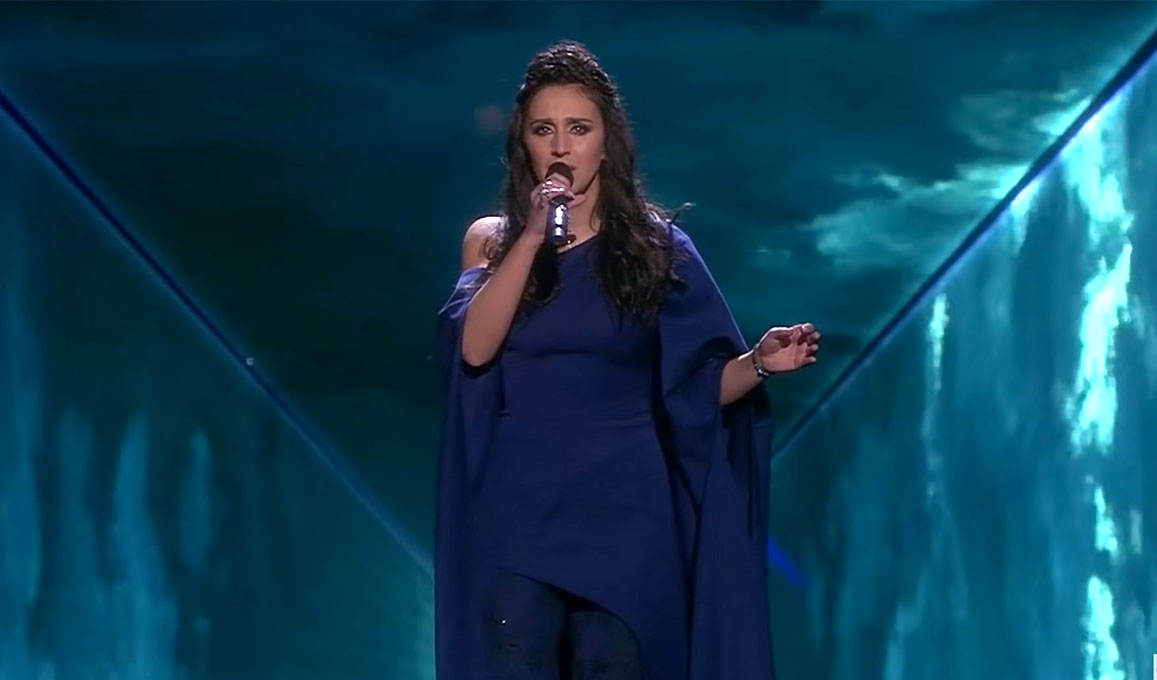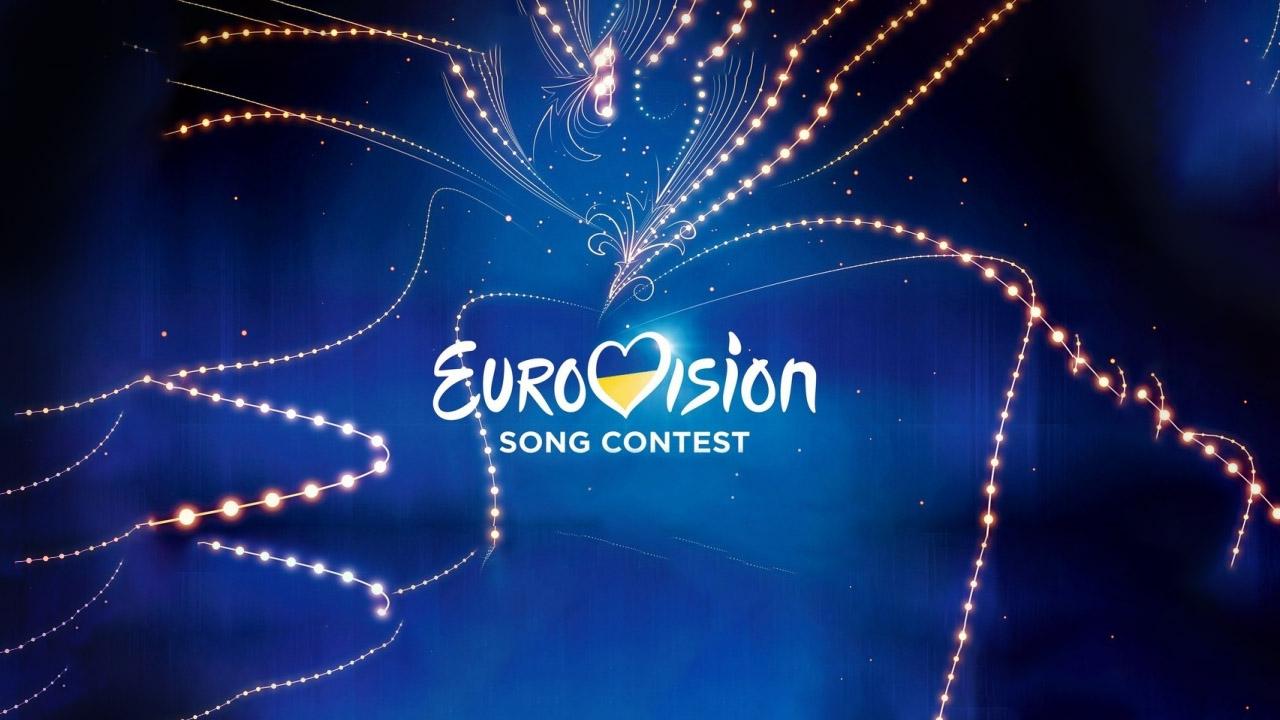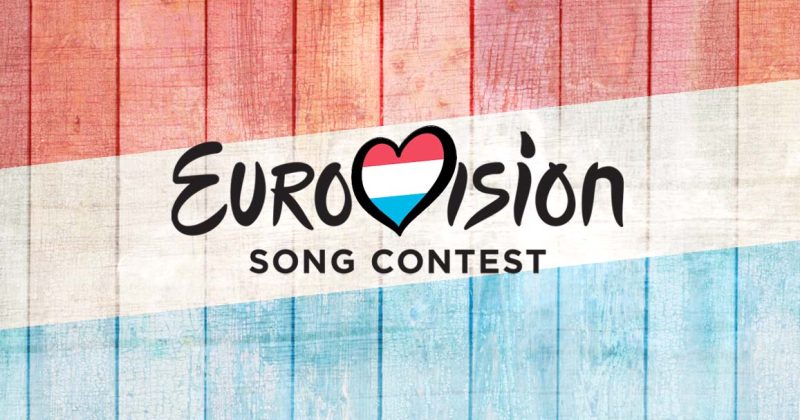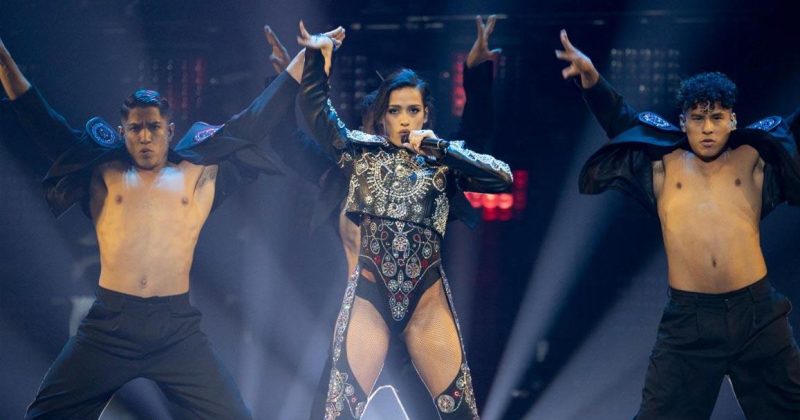
Ukraine faces a turbulent time in “Vidbir 2026” as Jamala criticizes “terrible” submitted songs and legal battles over participation rules potentially changing.
This year, even before the first note was heard on the Ukrainian “Vidbir 2026”, the drama had already begun. At its center is none other than Eurovision 2016 winner Jamala, who was appointed this year as the musical producer of the competition. But instead of a national creative celebration, Jamala found herself dealing with what appears to be an artistic crisis in Ukrainian music.
“It Simply Tears Me Apart”
 A month and a half have passed since September 4th, the day when the song submission window for “Vidbir 2026” opened. The country that won first place twice in the last decade, and has maintained its position in the top ten for five consecutive years, now stands before what appears to be a musical crisis.
A month and a half have passed since September 4th, the day when the song submission window for “Vidbir 2026” opened. The country that won first place twice in the last decade, and has maintained its position in the top ten for five consecutive years, now stands before what appears to be a musical crisis.
Jamala, the musical producer of “Vidbir 2026” and the singer who brought Ukraine victory at Eurovision 2016 with the historic song “1944”, and the first “Vidbir” winner, is responsible for assembling the initial list of 15 songs that will advance to the semi-final stage (the “Longlist”). A task that currently seems more difficult than in any previous year.
In a video she posted early last week to her official Telegram, Jamala appeared extremely frustrated as she sharply criticized the low standard of submitted songs and the quality of musical productions, even calling many of this year’s submissions “terrible”.
Jamala emphasized that the applicants “don’t take their own musical material seriously”, and that the materials sent to the competition so far allegedly suffered from poor sound quality, weak performances, and intonation errors:
“Just terrible demos, terrible quality, terrible performance, terrible songs, terrible intonation. There’s simply nothing to catch the eye!”
In her frustrated appeal to candidates, she highlighted the lack of artistic identity, noting that
“In some songs it’s hard to understand which country the creators come from or what message they’re trying to convey”.
Which she claims is a basic requirement for Eurovision success.
Extending a Helping Hand
Last weekend, the singer decided to take matters into her own hands and offer personal help to candidates in writing and producing competition songs. She emphasized that she’s willing to work with them for free to create songs worthy of the competition and said:
“Don’t know how to emphasize the chorus? We’ll do it. Don’t have a budget for good production? Fine, I’ll handle it. We’ll do it”.
Now, according to her, the situation has improved and her direct statements have led to positive results. Since the aforementioned video, new candidates have started sending better and more polished materials.
Sounding more positive, she said:
“I want you to feel free to send me your demos, but so that it’s clear we’re talking about a song with a verse, chorus, bridge, and clear idea. We’ll do everything else together. I just don’t know what else is needed for you to send good quality recordings where everything sounds clear”.
The Law and the Storm
One of the singers who has already submitted an application to “Vidbir 2026” is singer Olya Polyakova, who is considered one of the country’s favorites but stands at the center of another scandal surrounding the Ukrainian selection. She did participate in the selection in 2012, where she reached 8th place, but since then things have changed significantly.
The Ukrainian singer of Russian origin shared on her Instagram her decision to participate in “Vidbir 2026” and detailed her struggle to amend the law prohibiting artists who performed in Russia since 2014 from representing the country at Eurovision.
הצגת פוסט זה באינסטגרם
Polyakova, who claims that since 2015 she hasn’t returned to visit Russia at all, not even to meet her mother who still lives in Moscow, sent a letter to the Ukrainian national broadcaster Susplne, aiming to change the law, in which she wrote that as someone who lives, works, and pays taxes in Ukraine, and as someone who clearly chose the Ukrainian side in the conflict, she deserves a place in the competition to represent the country. She further argued that the law should be rewritten to suit the new reality in Ukraine, as now it’s clearer than ever who supports which side:
“I sincerely believe in fair, modern, and European choice. But the rules must evolve together with the country. We have all changed – our culture, our society, and our values. Therefore, it’s important that every artist who lives, works, and creates in Ukraine has an equal right to represent our country on the international stage”.
Well-known Ukrainian producer Igor Kondratyuk addressed the possibility of Polyakova’s participation in “Vidbir 2026” and her proposal to change the law, saying:
“I don’t know what Ukrainian artists did in Russia after March 2014. But unfortunately, it seems that in 2014 Ukrainian law still didn’t prohibit this”.
According to him, the criteria should be equal for all artists and yet, he noted that even if it’s right to remove the clause, this isn’t the time to do so:
“The only thing that needs to be maintained is equality of rules among all selection participants. But as of today, when a war is ongoing, I wouldn’t change the rules”.
The Stars Who Will Save Ukraine?
Registration for the Ukrainian selection will close on October 27th, which doesn’t leave much time for preparations (and dramas), neither for regular competitors nor for stars who have already expressed desire to participate in the selection competition.
Among these stars is the beloved Ukrainian pop band KAZKA, which already participated in the selection in 2018 where they reached sixth place and in 2019 where they reached third place. The band’s song “Plakala” achieved great success throughout Europe and even in Israel.
Another singer who will again compete for the right to represent Ukraine at Eurovision is SOWA. The singer who has already entered the Longlist twice expressed her serious intention to represent her country in the competition:
“This time I’ll do everything I can to be part of this event”.
What Else Awaits Us?
In about a week, the window of opportunity for sending songs will close, and then, based on the initial screening, the Longlist will be selected and invited to final auditions. By December 15th, the finalist list will be published, including nine artists, while the tenth contestant will be chosen through an online “wildcard round” vote from among the six artists who didn’t qualify directly.
The final itself will take place in February 2026, and the winner will be determined by weighing public votes and judges’ opinions.
A long season still lies ahead of us, and we can only hope that the winds in Ukraine will calm down.
Ukraine at Eurovision 2025
“Bird of Pray” is the name of the song that was performed by Ziferblat, representing Ukraine in Eurovision 2025. Ukraine qualified for the final from the first semi-final of the contest and finished 9th overall with 218 points. Ukraine finished 6th in tele-votes and 14th in jury votes.
The Ukrainian result is their worst one since 2018.
Eurovision 2026: This will be Ukraine’s 21st participation in the Eurovision Song Contest. Ukraine joined the competition in 2003 and has won it three times. Ukraine’s last victory was in Eurovision 2022 with the song “Stefania” performed by Kalush Orchestra.

Email: [email protected]
Phone: +972-50-9441919
Ilay Gaist is a leading Israeli content creator and writer specializing in the Eurovision Song Contest. He is a well-known commentator with extensive expertise in the contest’s history, rules, and dynamics. His passion for Eurovision drives him to deliver rich, professional, and innovative content to his audience.
Ilay holds a bachelor’s degree in Arabic and has a multilingual background. He also engages in cultural research, with a particular focus on global culinary traditions and the evolution of local cuisines around the world.








